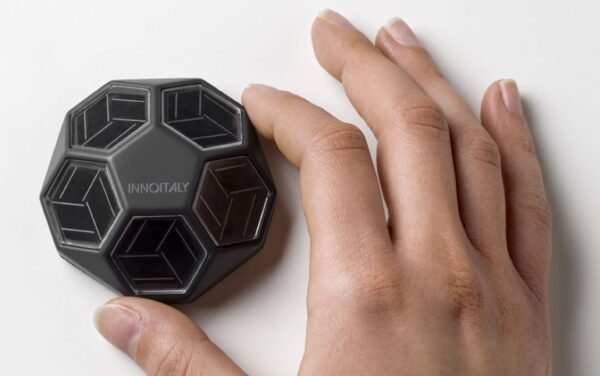Italian startup Ribes Tech has developed a roll-to-roll (R2R) manufacturing process for organic photovoltaic (OPV) modules.
The process includes a slot die coater and screen printing stations. “We have a pilot line that has proven itself. Every layer of the PV cell is deposited through standard R2R printing techniques,” Francesca Scuratti, manager of product development at Ribes Tech told pv magazine. “It requires no transparent conductive oxides for bottom electrode, uses no rare or scarce materials, and the modules themselves are easy to integrate into power sub-systems.”
The company is a spinoff of a collaboration between Italian printing specialist OMET Group and the Italian Institute of Technology. It has a manufacturing capacity of 200,000 devices a year, based on a system with two printing heads and a 30 cm web width.
The process enables the production of very thin indoor energy harvesting devices designed to be battery replacements or retrofits in a wide range of low-power electronic devices, such as remote sensors, smart labels, and tracker devices.
Ribes Tech's modules have 12% power conversion efficiency indoors when integrated as a component of an electronic device, and work efficiently in the whole indoor range, from 5 lux up to 2000 lux, according to Scuratti.
“Now we are looking for investments to support our next scale up phase. We are ready to produce PV modules in high volume, like printing labels,” said Scuratti, noting that at full scale with multiple printing heads, the company’s equipment could print “up to several tens of millions of photovoltaic cells.” For example, up to 50 million units of small-sized OPV devices measuring 3 cm x 5 cm.
The Italian company, founded in 2016, sees potential for its energy harvesting modules to address several challenges in wearable and Internet of Things (IoT) electronics. For example, enabling lower maintenance costs related to manually changing or charging batteries, complying with regulations that would restrict the use of non-rechargeable batteries, and reducing environmental hazards related to materials used in conventional batteries.
At the recent Consumer Electronics Show, a U.S. trade fair, one of Ribes’ partners presented two innovative battery-free solutions for ultra-low power sensors. One of them, is a dome-shaped environmental sensor based on a registered design by compatriot company Innoitaly. Suitable for homes, offices, and gardening applications, it integrates Ribes' PV modules along with humidity, temperature, light, occupancy sensors and a data communications sub-system.
“They are completely maintenance-free, a so-called ‘set & forget' solution that maximizes the light harvested from every direction,” said Scuratti.

Image: Innoitaly
This content is protected by copyright and may not be reused. If you want to cooperate with us and would like to reuse some of our content, please contact: editors@pv-magazine.com.



3 comments
By submitting this form you agree to pv magazine using your data for the purposes of publishing your comment.
Your personal data will only be disclosed or otherwise transmitted to third parties for the purposes of spam filtering or if this is necessary for technical maintenance of the website. Any other transfer to third parties will not take place unless this is justified on the basis of applicable data protection regulations or if pv magazine is legally obliged to do so.
You may revoke this consent at any time with effect for the future, in which case your personal data will be deleted immediately. Otherwise, your data will be deleted if pv magazine has processed your request or the purpose of data storage is fulfilled.
Further information on data privacy can be found in our Data Protection Policy.